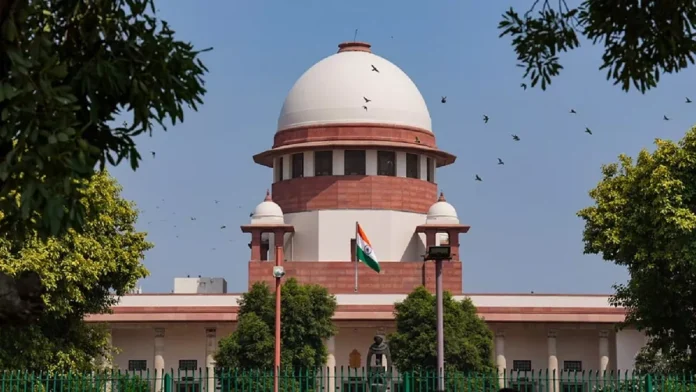
The Supreme Court has given an important verdict on the right of the state to occupy or acquire private property and distribute it for public good by considering it as the material resource of the community. In a majority decision of 72, a nine-judge Constitution bench has said that all private properties cannot become part of the material resources of the community.
The Supreme Court has given an important verdict on the right of the state to occupy or acquire private properties and distribute them for public good by considering them as the physical resources of the community. The nine-judge Constitution Bench, in its 7:2 majority verdict, has said that all private properties cannot become part of the physical resources of the community and the state cannot take them under its control for distribution of public good.
Drawn the boundary line of rights on private properties
The apex court said that only in some cases the state can take or claim private properties. That is, all private properties cannot be considered community resources which the state can take under its control for public good. While this far-reaching decision of the Supreme Court has drawn the boundary line of the government’s right on private properties, it has also given a shock to the thinking of that class who say that all properties will be surveyed and distributed equally. The Supreme Court’s decision on Tuesday somewhere confirms the right of the individual on private property.
The nine-member bench headed by Chief Justice DY Chandrachud has given this verdict while answering the legal questions sent to the Constitution Bench in a case of Maharashtra. Nine judges have given three separate judgments of 429 pages in which Chief Justice Chandrachud has given the judgment on behalf of himself and six other judges Hrishikesh Roy, JB Pardiwala, Manoj Mishra, Rajesh Bindal, Satish Chandra Sharma and Augustine George Masih, in which the above order has been given. While Justice BV Nagarathna has partially agreed with the majority decision. While Justice Sudhanshu Dhulia has given a decision dissenting from the majority.
Some tests have to be met
Justice Chandrachud has said in the majority judgment that every resource owned by a person cannot be considered a material resource of the community just because it fulfills the material needs. The court said that before any privately owned property is considered eligible as a material resource of the community, it has to meet certain tests.
The court, while interpreting Article 39(B) of the Constitution, said that the inquiry regarding the resource falling under Article 39(B) should be based on certain things. This may include factors such as the nature of the resources, characteristics, the impact of the resource on the well-being of the community, scarcity of resources and the consequences of concentration of such resources in private hands. The bench said that the principles of public trust developed by the Supreme Court can also help in identifying those resources which come under the purview of the material resource of the community.
Justice Dhulia, in his separate judgment, completely disagreed with the majority.
Justice Chandrachud has said in the majority judgment that every resource owned by a person cannot be considered a material resource of the community just because it fulfills the material needs. The court said that before any privately owned property is considered eligible as a material resource of the community, it has to meet certain tests.
The court, while interpreting Article 39(B) of the Constitution, said that the inquiry regarding the resource falling under Article 39(B) should be based on certain things. This may include factors such as the nature of the resources, characteristics, the impact of the resource on the well-being of the community, scarcity of resources and the consequences of concentration of such resources in private hands. The bench said that the principles of public trust developed by the Supreme Court can also help in identifying those resources which come under the purview of the material resource of the community.
Justice Dhulia, in his separate judgment, completely disagreed with the majority.
